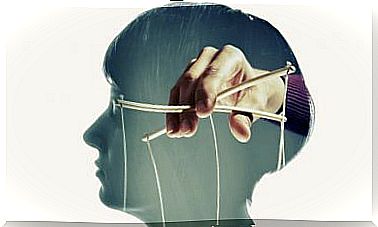Fear Of Insignificance: The Current Epidemic

The fear of insignificance is one of the current epidemics. Humans are comparators, in the same way that we are envious. We need a reference to know if we are in a place that will allow us to survive or not. Who were we comparing ourselves to very recently? With our family or with the people who were in our town, or neighborhood, and who thought similarly to you.
Now we compare ourselves with unattainable characters, products of marketing; comparisons in which we always “lose out”. This fear of insignificance is one of the modern epidemics. That is painful because, in reality, most images are doctored.
Faced with this, it is very important that people learn to have their own values and set their own goals. As we are a society that works so little internally, the fear of insignificance has gained ground, there are many people who grow up without being clear about what is important to them.

In front of many influencer , few references
We live in a technological world, also tending to an even more technological world. We have at our fingertips means that allow us to communicate globally in a personal or anonymous way.
Social networks provide us with a space to express what we feel and think. This is used by brands to get closer to people and by people to get closer to brands.
Companies are dedicating more and more budget to increase their community of active followers on social networks ; They want them to recommend their products and services instead of directly advertising. More and more companies are betting on this formula and especially more and more those who are willing to pay for it.
Influencers, for the most part, are masked brands. Projecting manipulated lives is not influencing. The danger that a large number of influencers can generate is in the distorted prototype that they project as a reference. Let us remember at this point the importance of education, responsibility and personal effort. We are confusing our young people, they do not have to ask for a light load, but a strong back.
The negative stigma of mediocrity: devalued normality
Normality moves the world. Normality has marked our evolution as a species and will continue to mark it. At present there is a growing feeling of devaluation towards normality, when it is one of the basic pillars for our societies to function.
More and more parents are trying to make their children stand out in some field, sport, school, music, etc. ; the problem is that they are willing to pay a high price to get it (in some cases they are not even aware that they are paying a price). This increases this current fear of insignificance. Our mission will be to sow in the little ones the idea that they themselves are responsible for the objectives and goals they pursue, with all that this implies.
Educating in frustration, personal and collective effort, from individual initiative, will give the next generation an opportunity not to suffer from this epidemic. Let’s think that, in many cases, this fear of insignificance ends in anxiety disorders and depression.
Being significant in society does not guarantee well-being, or happiness, in fact, it may not help or subtract. The new social epidemics divert us from ourselves, from our own goals. We are constantly bombarded with external and foreign goals, creating directly or indirectly dissatisfactions and non-existent needs to feed excessive consumption.
Next, we leave you a link from the People talking series where in the chapter The Astronaut a father tries to convince his partner to buy a very expensive space suit for his son because he has said that when he grows up he wants to be an astronaut. He believes it will help fuel his illusions, and she believes it will create frustration in the long run. The couple examines self-realization through children and the negative stigma of mediocrity in a discussion where reason and paternal sentiment clash.









